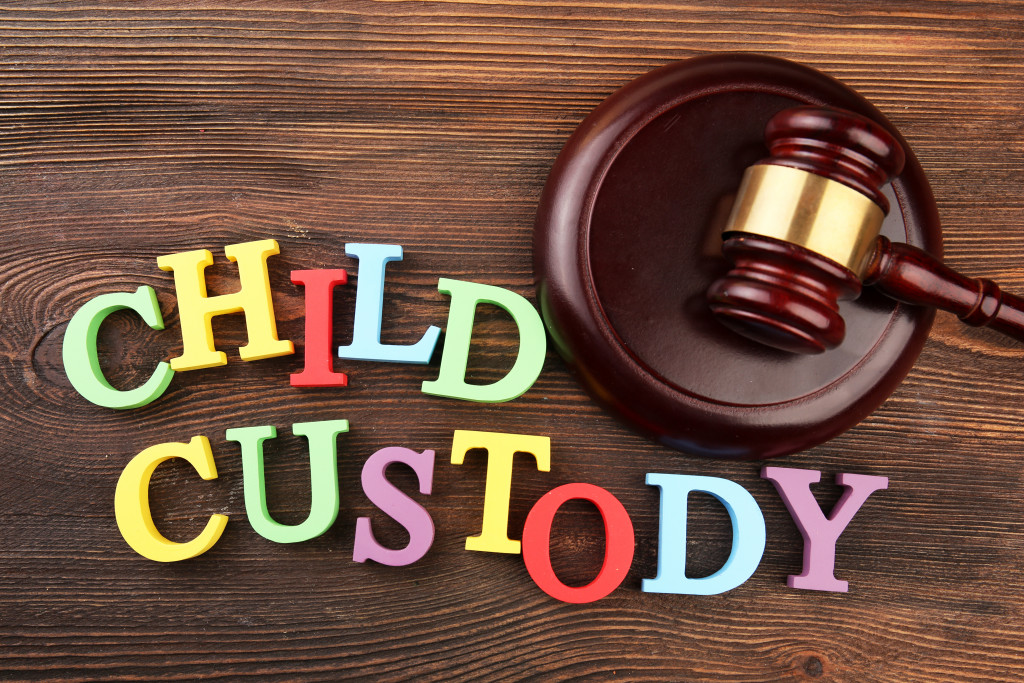- Fathers have a right to equal parenting time, with courts considering several factors in custody battles.
- Legal protection is vital; using an attorney and possibly a mediator can simplify the divorce process.
- Co-parenting effectively requires courteous, respectful communication and clear boundaries with the ex-spouse.
- Despite the emotional complexity of divorce, maintaining a positive mindset and attitude helps preserve meaningful child relationships.
Divorce is a daunting process for everyone involved, especially for dads who may feel lost, overwhelmed, and helpless. Going through a divorce can be an emotional rollercoaster, and as a father, you want to make sure you protect your rights and responsibilities. This article will examine what every dad going through a divorce should understand.
Equal Parenting Is a Right
As a father, you may already be feeling like the court system is somewhat biased and that mom generally has a better chance of getting primary custody. It’s important to know that the custody battle is not a one-sided affair, and every father has a right to equal parenting time, whether it’s 50/50 or any other mutually agreed-upon arrangement. The court will assess each situation and make decisions in the best interest of the child, which includes both parents’ participation in their upbringing. Here are other factors that the court will assess:
Safe and Nurturing Environment for the Child
The court deeply considers the capacity of each parent to provide a secure and nurturing environment for the child. This includes various factors such as financial stability, the parent’s mental and physical health, the living conditions of the parent’s home, and the presence or absence of any form of domestic violence or substance abuse.
The court’s primary concern is to ensure the child’s safety and overall well-being. As a father, demonstrating your ability to provide a loving, stable, and nurturing environment can significantly enhance your chances of obtaining a favorable custody arrangement.
Physical, Mental, and Emotional Health
The physical, mental, and emotional health of both parents significantly impacts the court’s decision process. If a parent is experiencing health issues, the court may determine their ability to provide for their child’s needs effectively. A parent’s mental health status, including any history of depression, anxiety, or other mental illnesses, can also play a role in custody decisions.
In addition, the emotional health of a parent is essential. The court will consider the emotional bond between the parent and child, the parent’s ability to provide emotional support and guidance, and their ability to maintain a positive and healthy relationship with the child.
Parent’s History of Involvement
The court will take into account each parent’s history of involvement in the child’s life. This includes not just who has been the primary caregiver but also who has been attending parent-teacher conferences and doctor appointments and who has been present at important events in the child’s life.
The court wants to see evidence of a consistent, ongoing relationship between the parent and child. As a father, actively showing your dedication and commitment to your child’s life can have a substantial impact on the court’s decision.

Protect Yourself Legally
Navigating the complexities of a divorce process, especially when it comes to issues of child custody and parenting rights, can be challenging without the proper legal guidance. Hiring a competent and experienced divorce attorney is crucial.
An attorney can help you understand the intricacies of the law, protect your rights, and advocate for your best interests. They can provide advice and insight, help you prepare for court, and negotiate on your behalf, making the process of divorce somewhat easier to handle.
If possible, consider getting a mediator to help you reach agreements with your ex-spouse without going to court. A mediator can assist in coming to reasonable and mutually beneficial solutions that satisfy both parents’ needs regarding child custody and parenting time.

Communication With Your Ex Is Critical
Communication is vital during and after divorce, especially when it comes to co-parenting. You may be tempted to ignore your ex altogether or give in to anger and bitterness. This will only damage your relationship with your child in the long run. Instead, here are some ways to communicate effectively with your ex:
Be Courteous
Maintain a level of respect and professionalism when communicating with your ex. Understand that your words and actions can significantly affect your children. Always aim for clear, concise, and non-confrontational communication. Co-parenting requires both of you to work together for the children’s best interests, and this can only be achieved through healthy and respectful communication.
Set Boundaries
Setting boundaries in your communication with your ex-spouse is essential in maintaining a healthy co-parenting relationship and minimizing conflicts. This may include ironing out what topics are off-limits, the best times and methods for communication, and how decisions concerning the child will be made. By establishing clear boundaries, both parents can maintain a more controlled and supportive environment for the child, reducing any potential stress or discomfort.
Stay Positive
Maintaining a positive attitude in your interactions with your ex is crucial for effective co-parenting. This does not mean ignoring the issues that led to the divorce but instead focusing on the present and the well-being of your children. Encourage open dialogue, provide constructive feedback, and avoid blame games.
Divorce is a complex and emotional process, especially when children are involved. Every dad going through a divorce should understand that there are legal provisions in place to protect their rights. It’s essential to approach divorce with the right mindset, seek out adequate legal representation, communicate with your ex, and take the necessary steps to safeguard your rights. No matter what the outcome of the divorce case may be, remember that you can still maintain a meaningful relationship with your children with the right approach and attitude.
